Qasar Younis
Books
Below is a list of books that have made a deep and lasting impact on me. As the adage goes ‘your thoughts become your destiny’ and these books have influenced my thoughts.
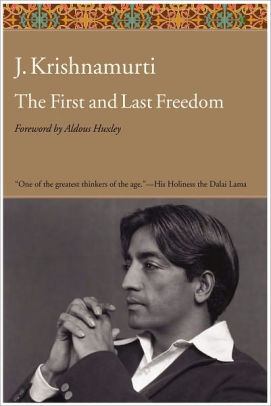 The First and Last Freedom
The First and Last Freedom
Jiddu Krishnamurti
About 1/4 of the way into this book I was really wondering if I could make it through what seemed like ramblings; a guru with more style than substance. Krishnamurti explains, in painstaking detail, concepts that are seemingly very simple but simultaneously deeply profound. I realized many assumptions are so ossified in our minds, that one can barely recognize their existence. Upon completion, I closed the book and saw the quote on the back cover: "Truth is a pathless land" and was finally beginning to understand what that means.
 The Road to Serfdom
The Road to Serfdom
F.A. Hayek
This is a towering work. Though I only recently read this book, it aligns with something I wrote in 2006: capitalism delivers in practice what socialism purports in theory -- especially for marginalized groups of society. There is a quote at the beginning of a chapter called “The Great Utopia” by Holderlin: “What has always made the state a hell on earth has been precisely that man has tried to make it heaven.” It's worth pointing out that in 1944, I could see Hayek's views would be debatable, but now, over 75 years later (and centrally controlled economies having devastated hundreds of millions of lives), there is no question: open and free markets are the only viable path forward. The potential exception is in parts of civic life where the supply-demand curve breaks (primarily health, education, and safety).
 Chaos On The Shop Floor
Chaos On The Shop Floor
Tom Juravich
I read this book when I was a 19-year-old production manager at Lake Orion Assembly and again when I was a manufacturing engineer at Flint Engine Assembly. It was my first insight into the sociology of work. Many lessons here are applicable to broader management principles that apply far from the factory floor.
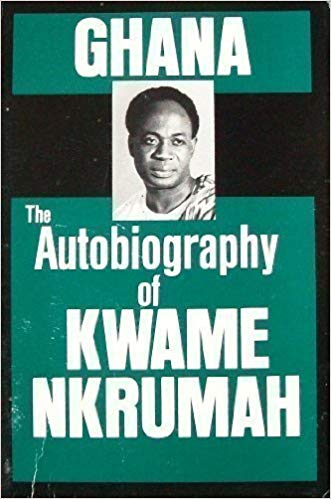 Ghana
Ghana
Kwame Nkrumah
Self-rule is a luxury that many people don't understand or, perhaps, appreciate. Before I could actually travel to West Africa, I wanted to learn more and found this book to exceed all expectations. The account of leading the Gold Coast to become Ghana is fascinating but, almost predictably, non-linear. Nkrumah would be overthrown for his left-leaning policies and would become a footnote in the global power struggle for dominance between capitalism and communism.
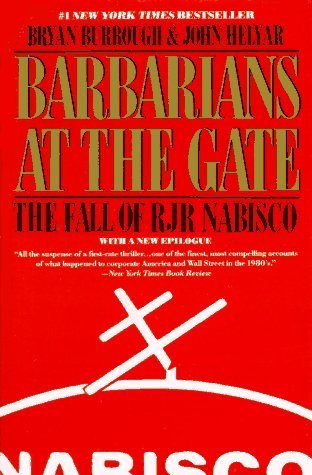 Barbarians at the Gate
Barbarians at the Gate
Bryan Burrough, John Helyar
Is 500 plus pages about essentially one private equity deal interesting? You bet it is. Although a bit sensationalized, this book is well researched and written. It’s also somewhat settling that modern warfare is fought in boardrooms and proxy votes rather than cannon fire and bayonets. Reading this book will also drive home the fact that, like many things, private equity is more than a simple caricature of investors buying companies and firing people so they can buy bigger yachts.
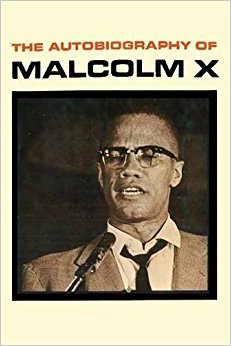 The Autobiography of Malcolm X
The Autobiography of Malcolm X
Malcolm X
This book is a must-read for anyone who is interested in the American experience. The three periods in Malcolm X's life are as fascinating as they are dramatic: drug dealer, member of the Nation, and finally orthodox Islam. There are few people that have left such a lasting and distinct mark on American culture. In many ways, he embodied what it is to be American.
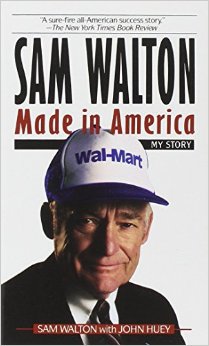 Made In America
Made In America
Sam Walton
This is perhaps my all-time favorite business book even though it's an autobiography. Maybe because it's hard to separate Sam Walton from Walmart, it seems it's as much of a story of a business as it is a man. What is particularly impressive about the Sam Walton story is how seemingly straightforward it is -- build a good business, treat people well, and attain success. Like Warren Buffett, Walton shows how a few guiding principles followed for long periods of time can have a tremendous impact.
 The Tragedy and Lessons of Vietnam
The Tragedy and Lessons of Vietnam
Robert S. McNamara
I've read a number of books on the Vietnam War but this book shows, better than others, how muddy the environment was in which decisions had to be made. McNamara has said himself, "the primary responsibility of a president is to keep the nation out of war, if at all possible" and I wonder how much of that belief is impacted by his experience in the Vietnam War. What I really enjoyed about this book is how absolutely detailed it is. It is a must-read for anyone who is interested in the topic or the mechanics of leadership under fire.
 The Road Ahead
The Road Ahead
Bill Gates
I read this not so well known book in 2005, just a little under 10 years after it was written and was struck by how clairvoyant and approachable it was. I read it shortly before I moved into high tech from the automotive industry and it served as a great primer to how much things can change in a short time. The ideas are still fascinating and the book also serves as a great snapshot of what the technology world looked like as it was being engulfed by the internet.
 Brave New World
Brave New World
Aldous Huxley
I happened to read this book nearly back to back with 1984 and quickly thought that the future would much more likely resemble this book than 1984. This is because we resist control from others but willingly subjugate ourselves if we get something in return. I would recommend reading it for no other reason than to see aspects of our modern society so accurately reflected by someone writing in 1932.
 Long Walk to Freedom
Long Walk to Freedom
Nelson Mandela
Just looking at the cover of this book stirs deep emotion in me. It was perhaps the first book that I read out of interest and left a deep impression. Mandela was a revolutionary but unlike others, he succeeded in lifting his people from the yoke of foreign oppression and lived to harvest the fruits of his sacrifice. The tale of South Africa is a bittersweet one however and in the words of Mandela "After climbing a great hill, one only finds that there are many more hills to climb".
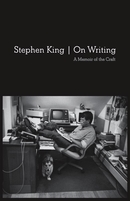 On Writing
On Writing
Stephen King
This book is both well written as a memoir and as an informal instruction manual. In some ways, it's the writer's version of Ray Dalio's book Principles. The path to excellence is strikingly similar to other people who have attained the highest level of success: dogged hard work, discipline, persistence, a desire to master the skill, and luck.
 Guns, Germs, and Steel
Guns, Germs, and Steel
Jared M. Diamond
This is a must-read book if you are interested in how civilizations have developed and wonder about questions like "why are some countries rich and others poor?" It's much more dense and therefore rewarding than many pop-culture books that have come to dominate airport convenience shops.
 Adventures of a White-Collar Man
Adventures of a White-Collar Man
Alfred P. Sloan
After a few pages of this book, I knew it would be amazing. It is the history of the early auto industry from the perspective of Alfred P. Sloan in 1941. It is littered with locations that I grew up in and went to school around. Sloan's pragmatic approach is refreshing and resonates with my own view of organizations within technical businesses. No surprise, I finished the book the same day I started it.
 The Kingdom of Auschwitz: 1940-1945
The Kingdom of Auschwitz: 1940-1945
Otto Friedrich
I’m not sure how I would react to the holocaust if I was Jewish. I imagine it’s a tragedy so profound and vast that it would impact almost everything I would come in contact with. Similar to American slavery, my fear is one day we will come to take for granted that humans did this to each other. And because of this, perhaps take us down a path which we’ve already shamefully walked. This book is overwhelmingly emotional.
 Lenin
Lenin
Robert Service
To understand the 20th century, one must take some time to understand Lenin. This is one of the best books I've read about the leader of the October Revolution. Robert Service's grasp and depth of understanding of his subject are so good I immediately read his book on Stalin right after this and once again, I was not disappointed.
 The Story of Art
The Story of Art
E.H. Gombrich
I found this book while generally trying to learn about art history and I can see why it's so famous. It reads more like a textbook than anything else but its plain language mixed with page after page of actual historic art makes this a high recommendation if you're curious about the subject. The one small nitpick is this book really is about Western European art, almost wholly ignoring Russian, Islamic, Indian, Chinese or Japanese. But a sign of how good the writing and explanation are is that I feel easily this could have been broken into 10 volumes. Several thousand years of art into a few hundred pages leave you wanting for much more.
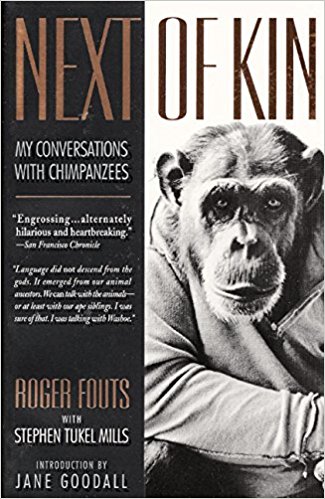 Next of Kin
Next of Kin
Roger Fouts
I mistakenly picked up this book thinking it was In The Shadow of Man. Nonetheless, it ended up being incredible. It filled in the missing pieces in my brain that shows a clear link to other animals. The latter part of this book delivers an emotional impact. Once the reader can see that chimpanzees are indeed more human than we have considered, it's sad to see how they were being treated. It's heartening to realize we made good progress since this book was written to address this type of abuse.
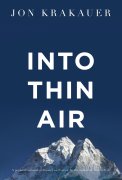 Into Thin Air
Into Thin Air
Jon Krakauer
This is a gripping book that makes mountaineering seem both amazing and hideous. Reading about the eventual fate of the tragic 1996 Everest expedition that the author was a part of makes the reader ask "why?". Why would you risk life and limb for something so pointless as climbing a rock? The answer dawned on me that it is no less noble than a life wasted away in an office cubicle.
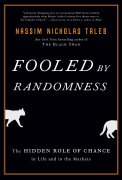 Fooled by Randomness
Fooled by Randomness
Nassim Nicholas Taleb
I read this book long before I started investing. It casts a long shadow on the way I think. Most specifically not to overlearn in early-stage investing in both success and failure. Taleb argues that events that happen with little help from luck are more resistant to randomness. What I learn from that is that there should be some process to drive repeatable outcomes, even in something with as much variance as early-stage technology investing.
 Up From Slavery
Up From Slavery
Booker T. Washington
Shortly before Booker T. Washington was freed from slavery in his early teens, Abraham Lincoln wrote: "If slavery isn't wrong, nothing is wrong." Washington would spend most of his life not fighting for freedom but the long shadow of slavery. He recounts literally building Tuskegee and puts forward a role model for self-reliance. After reading his own words, I'm someone who cannot support the criticism Washington received later in his life, most notably from W.E.B. Dubois. Washington was pragmatic and through that lens spoke on the condition of America at the time.
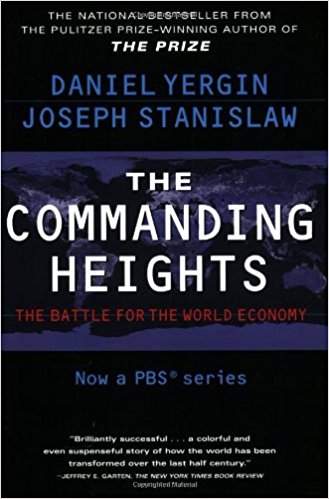 The Commanding Heights
The Commanding Heights
Daniel Yergin, Joseph Stanislaw
I decided to pursue an economics minor in undergrad after reading this book. A deeply insightful analysis about the debate around one of the most important questions shaping the last century: central planning vs free-market economics. As Stalin said, "Mankind is divided into rich and poor, into property owners and exploited; and to abstract oneself from this fundamental division; and from the antagonism between poor and rich means abstracting oneself from fundamental facts."
 The Politics of Revenge
The Politics of Revenge
Said K. Aburish
I read this book sometime before the 2003 Iraq invasion. In some ways the handwriting was on the wall then that could have helped us avoid the catastrophe that has unfolded over the past many years. Although the book provides a comprehensive study of Hussein, it's also a good read to understand Iraq and its recent history.
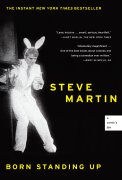 Born Standing Up
Born Standing Up
Steve Martin
Unsurprisingly maybe, there are many similarities to starting a stand-up career and being a founder. Stand up is one of my favorite forms of entertainment because of how unvarnished it is. You can't fake being a good stand up comedian. Similarly, you can't fake building a great product. Martin, without any pretension, reveals the struggle of the art. The book is both honest, entertaining and moving.
 Charles Darwin: 1809-1882
Charles Darwin: 1809-1882
Charles Darwin
One of the most striking things about Darwin was his amazing work ethic. What I found inspiring was the dogged nature of his quest for knowledge and truth. I think Darwin's daily habits underline a belief I've had for quite some time that our best work is done alone. Perhaps the reason this isn't championed more often as a path to success is that it is boring and by nature, we are social animals. Also intriguing about Darwin is that there seems to be little evidence from his teenage years that he would become such an influential scientist.
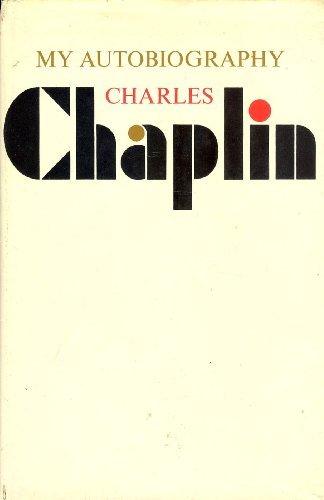 My Autobiography
My Autobiography
Charlie Chaplin
I found this book, like many, at a used book sale. Chaplin's early life reminded me of a Twain quote "The secret source of humor itself is not joy but sorrow. There is no humor in heaven." Only knowing about Chaplin as a caricature, I wasn't expecting much. However, his story is nothing but incredible and he is nothing less than a genius.
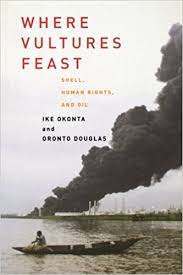 Where Vultures Feast
Where Vultures Feast
Ike Okonta
This book is not only an education on Niger Delta and its people, but also on the blind spots of capitalism. Reading this book opened my eyes to the modern ways that management of large, private organizations can participate in gross abuse.
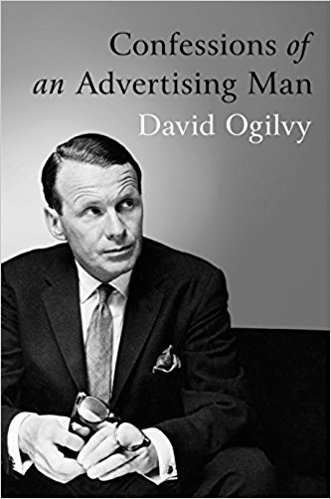 Confessions of an Advertising Man
Confessions of an Advertising Man
David Ogilvy
An excellent book if you are interested specifically in the art of advertising, marketing, selling or more broadly business. Ogilvy is clearly a master of his craft and it's surprising that this book was only written a dozen years after he founded his famous agency. The style is direct and sharp to the point you can almost hear the author speaking. He methodically goes through things like how to win and keep clients, how to write great copy and how advertising between mediums is different. Lastly, the book is a good time capsule into how advertising was. It would be interesting to see Ogilvy write a page on search ads.
 When Breath Becomes Air
When Breath Becomes Air
Paul Kalanithi
This is one of the most powerful stories I've ever read. It's heartbreaking and deeply emotional but does what the author intended: to give some guidance on how to approach death. His experience is particularly suited for the grim task at hand. Kalanithi understands both the biological and philosophical facets of death and can eloquently communicate his approach through his superb writing. As I read about him and his life, one thought kept going through my head: what a tragedy.
 Waiting for Godot
Waiting for Godot
Samuel Beckett
I'm fairly certain that if I had read this play without the accompanying analysis, it wouldn't have the impact that it did. However, thankfully, that wasn't the case. Although the work is high art, it delivers in a force that's usually not commonly associated with the genre. The work is an example of stripping ideas down to their bare bones to see their inner machinations.
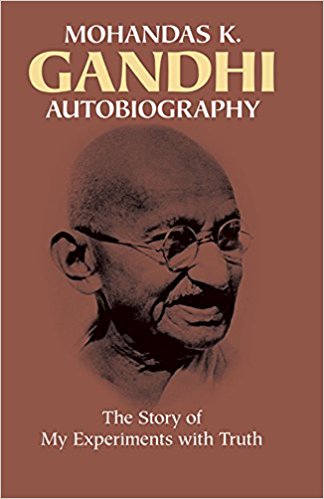 The Story of My Experiments with Truth
The Story of My Experiments with Truth
Mohandas Karamchand Gandhi
This book holds a special significance in my development. It has had a reverberating impact on the way I think about my life and actions. It also serves as an informal historical guide to pre-partition India and gives me pride in my South Asian heritage. Perhaps one of the most important books ever written in the past century considering its impact on other great leaders like MLK Jr. and Nelson Mandela.
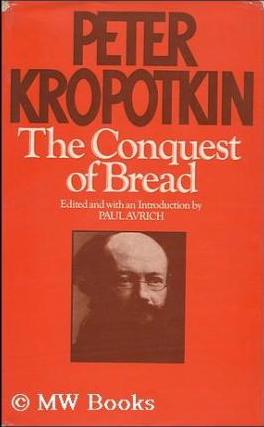 The Conquest of Bread
The Conquest of Bread
Peter Kropotkin
Considering the book is written in 1892 and considered to be the flag bearer of anarchists and communists, there are some ideas which are not totally wrong. Specifically calling out that socialism can have a dangerous authoritarian bent almost prophetically predicts the disaster of Marxist-Leninist Communism. The book is still an important read as it is the source material for many revolutionaries.
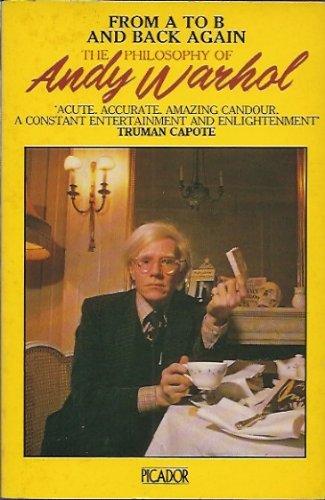 The Philosophy of Andy Warhol
The Philosophy of Andy Warhol
Andy Warhol
Wow, this is an incredible book. Many books can be shortened to an article, many articles shortened to a paragraph. For Warhol's book, the opposite is true. Some chapters could be full books. I give it the highest compliment I can: the book is art.
 Russia: A Short History
Russia: A Short History
Abraham Ascher
This book is a great introduction to Russia. The David McCullough line that "History is who we are and why we are the way we are" could have been written just to only describe the modern Russian Federation. There is almost a direct line from Kievan Rus', through the Tsars, the Soviet Union to the present day. I'm not sure, after strong state control for over a millennium, the Russian people want a Western-style democracy. The history of these people makes one thing clear: they are not Western or Asian. They are Russian.
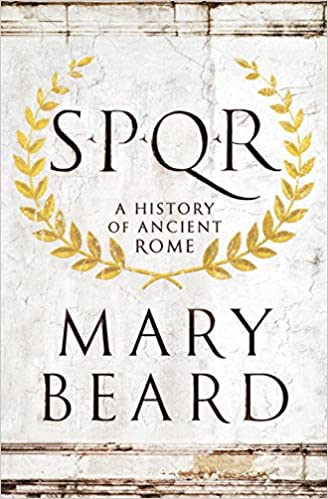 SPQR
SPQR
Mary Beard
I picked up SPQR mostly because I wanted to learn about ancient Roman history. Unsurprisingly, the true innovation of the Roman Empire is how it absorbed neighbors, provided broad citizenship, incentivized civil institutions (and the military), and dealt with power struggles within its own empire. This is a great book because Beard tends to weave narrative stories while calling out what simply isn't known about a subject that has been deeply studied. I wonder if one studied the Ottomans or the Tang Dynasty, you wouldn't see the same patterns.
 Brief Answers to the Big Questions
Brief Answers to the Big Questions
Stephen Hawking
One of my biggest regrets in life is that I got decent grades at the sacrifice of learning. So over the past years, I found myself relearning simple things like thermal radiation to wave-particle duality. Since I'm not looking to apply these learnings (like I was when I was getting my Mechanical Engineering degree), I found myself veering towards modern physics and from there to astronomy. There have been a handful of great books I've read that are so dense that I'm not sure I could get through them again, let alone recommend them. However, Brief Answers is exactly the opposite. It simplifies astronomy (and cosmology) in a way that is logical and entertaining, while not requiring prequalification.
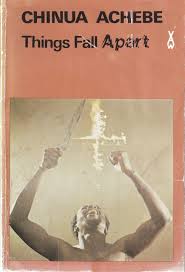 Things Fall Apart
Things Fall Apart
Chinua Achebe
I don't quite recall a novel that stuck in my mind as much as this one in the past decade. It's not entertaining as much as it is enlightening. Specifically about the intrusion of an outside culture that dominates a local population. I always wondered why more people in the world did not respond like the Japanese did to Jesuit missionaries. Maybe because many cultures approached the outsiders with their own understanding of the world, rather than the outsiders' understanding of the world. Or maybe because Japan was far from Spain and Portugal. Or maybe because Japan was an island. Or maybe because Japanese culture is more pronounced. I wonder, because of how famous this book became in Africa, how it probably had a real impact on the rise of African nationalism and decolonization.
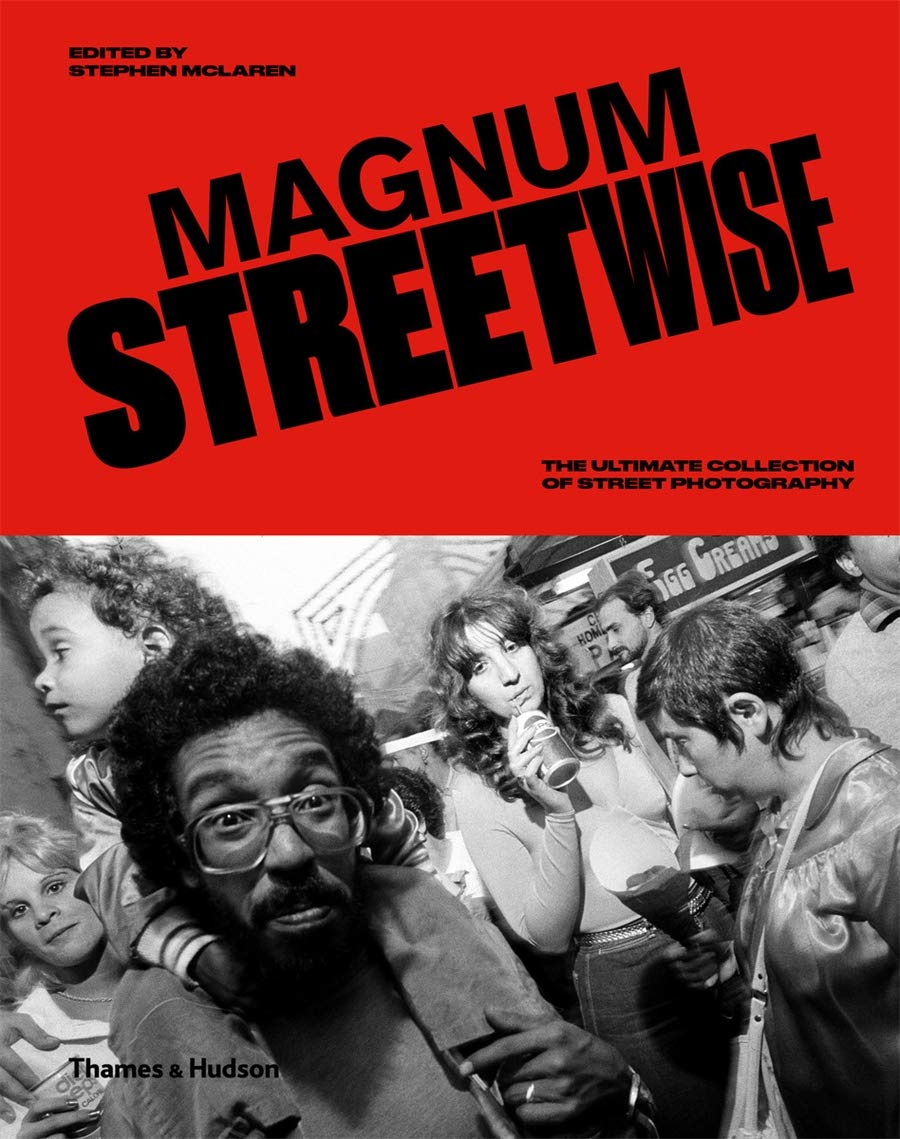 Magnum Streetwise
Magnum Streetwise
Magnum Photos
If you're tired of taking photos or are not getting photos you like, a good tip is to study other great photographers. Street photography is difficult because it's a mix of technique, mastery of the camera, timing, consistency and intuition. Deconstructing great photos against this framework has helped me become a better photographer. There are a lot of good photo books but Streetwise is a bit of a canonical record of the art form.
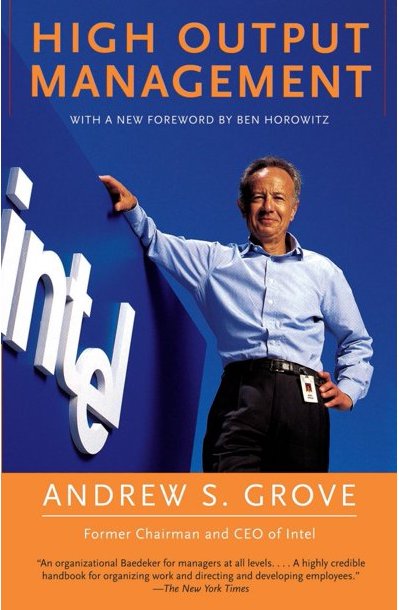 High Output Management
High Output Management
Andy Grove
Don't let the cover fool you, this is pure gold. We recently re-read this at Applied and someone said this is like a 200 page description of our culture. I take that as a massive compliment. Designing a team is akin to designing a mechanical system. It is bound by factors like the laws of physics and material properties. Surely, before you would design a turbine, you would learn about fluids. However, people try to learn management on the fly. Don't wing it.
 Dancing In The Glory Of Monsters
Dancing In The Glory Of Monsters
Jason Stearns
If you have a strong identity or a strong sense that your moral position is the correct one, I would ask you who you would be if you were born in the Congo. Would you believe in the same God or the same set of principles that you do now? This book details the history of the First and Second Congo Wars and all of the huge number of participants and their complex motivations. There is a reason these wars are also known as Africa's World Wars. It reminds me of how important public institutions are. The Congo is the #1 country I would travel to if safety wasn’t a concern.